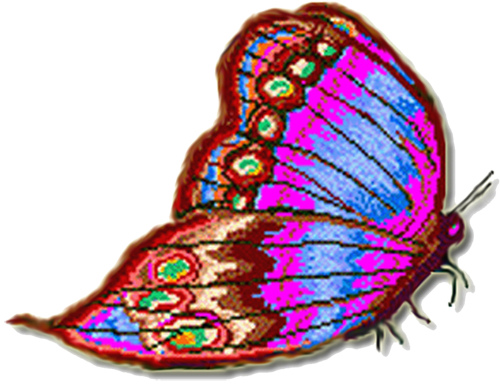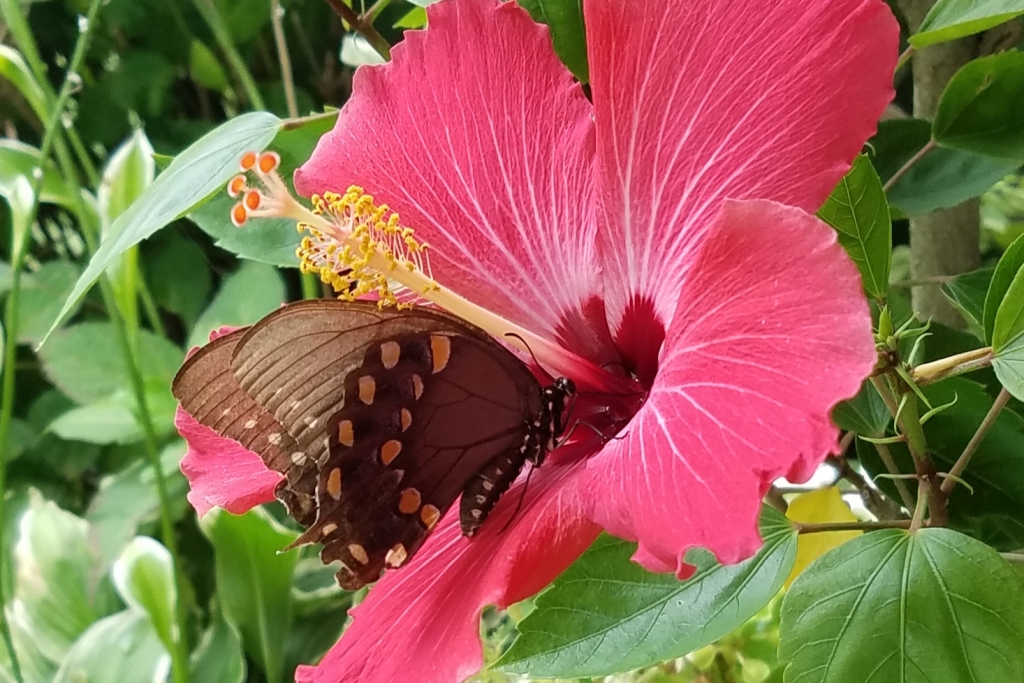I came across an interesting Letter to Editor of the Oregon Observer dated 3/9/21. Although the letter is from a gardener in Oregon, the information presented pertains just as well to gardening for the benefit of pollinators and wildlife in our state of New Jersey.
For several years I have overwintered Black Swallowtail butterfly chrysalides in mesh cages in my garage. Normally the black swallowtail caterpillars attach themselves to plant stems, branches etc. outside in our landscapes & form a chrysalis during September or October. Some of the chrysalides survive our harsh winters and predators such as birds and other insects, to emerge as the beautiful Black Swallowtail butterflies in spring.
This is just one example of one of the pollinators that may have taken up residence in our yards during the winter into mid to late spring. There are many other insects that overwinter in our area until the weather warms. As the letter to editor mentions, by postponing our spring yard cleanup, we give those insects a chance to survive.”
Letter: Wait a bit before spring garden cleanup
Published on Mar 29, 2021
If you are a gardener who didn’t clean up your flower beds last fall, congratulations. Preparing your garden for winter once meant cutting most plants down to the ground and raking every dried fallen leaf from the yard until there was no shred of nature left.
Those were popular methods before we knew better. Before we knew all the reasons NOT to clean up the garden in fall.
We now understand how our yards can be havens for creatures, large and small. Thanks to books like Doug Tallamy’s “Bringing Nature Home” we know how important native plants are for insects, birds, amphibians, and even people. Our gardens play an important role in supporting wildlife.
Many species of native bees need a place to spend the winter in hollow stems or burrowed in the ground. Native bees are valuable pollinators. Although monarchs fly south for the winter, many species of butterflies overwinter as adults under bark or in leaf litter.
Some butterfly species overwinter in a chrysalis hanging from a dead plant stem or in the soil or leaf litter. Some species spend the winter as a caterpillar rolled into a fallen leaf or inside a seed pod.
Native ladybugs, unlike the Asian ladybugs who sneak into our homes for the winter, hibernate under leaves or rocks or nestled at the base of a plant. Ladybugs are excellent pest eaters which we can welcome into our gardens by skipping a fall cleanup.
And there are other beneficial predatory insects who spend the winter sleeping in the untrimmed garden as adults, pupae, or eggs. When spring arrives, these insects keep emerging pests in check.
Insect-eating birds benefit from insects hibernating on dead plant stems or in leaf litter. Other birds eat seeds and berries.
Delaying garden cleanup until spring, waiting until temperatures are in the 50s for at least seven consecutive days, will protect all the creatures living there.
A final reason to delay garden cleanup is the beauty found in the winter garden: snow covering dried seed heads, frost on autumn leaves, icicles hanging from twigs and branches.
You can do Mother Nature a favor by saving your garden cleanup until beneficial insects have had time to hibernate and emerge in warm spring.
Susan Shedivy Fitchburg

